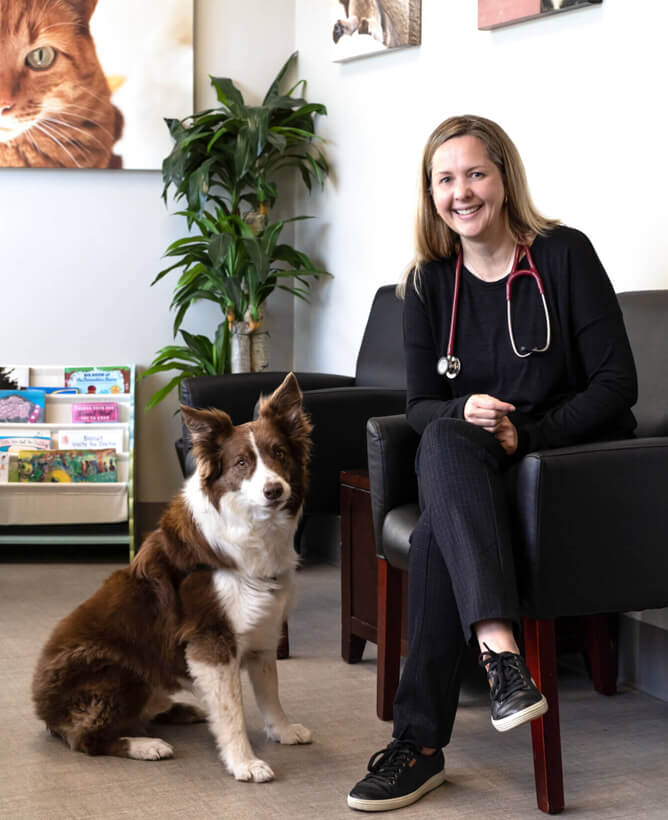
We recommend yearly exams because:
- 93% of pets examined annually need some level of care or management to restore health.
- One year of our lives is equivalent to five to eight years of a dog or cat’s life.
- 60-80% of cats and dogs over three years of age have dental disease that needs care.
- Dental disease can decrease life expectancy by 20%
Annual wellness exams are crucial in managing patient care as many diseases don’t have apparent symptoms making it challenging to detect their clinical indicators. Weight is a great indicator of a patient’s health but it might be challenging to determine slow or minor weight changes without a scale. The only sign that something is amiss early in many disease processes is a weight change. To spot weight fluctuations in your pet, one approach is to bring them in for an annual examination.
Frequency of Routine Exams
For younger animals, annual exams are required to examine the aforementioned issues as well as to start a conversation with pet owners about ongoing maintenance and early identification of any potential breed or conformational issues. However, once a year may not be sufficient to detect age-related issues in older animals (cats older than 10 years), such as renal deterioration, liver illness, cancer, and thyroid disorders. For an older pet, examinations every six months will be more beneficial. In addition to the examination, blood testing and urinalysis for older animals aid us in identifying any potential underlying issues.
Beyond the Physical
A complete physical examination offers the chance to evaluate the medical file and get a thorough history. Following up on and keeping an eye on medical difficulties and problems that have been detected in the past is frequently necessary. An opportunity for client education is also provided by the annual visit including discussions about flea treatment, new developments in vaccines, and current dietary information.
Prevention and early health improvement are significantly less expensive and ultimately more effective than treating an illness that has already progressed.

Northwest Veterinary Hospital
Call/Text: 206-545-4255
Fax: 206-545-4205
